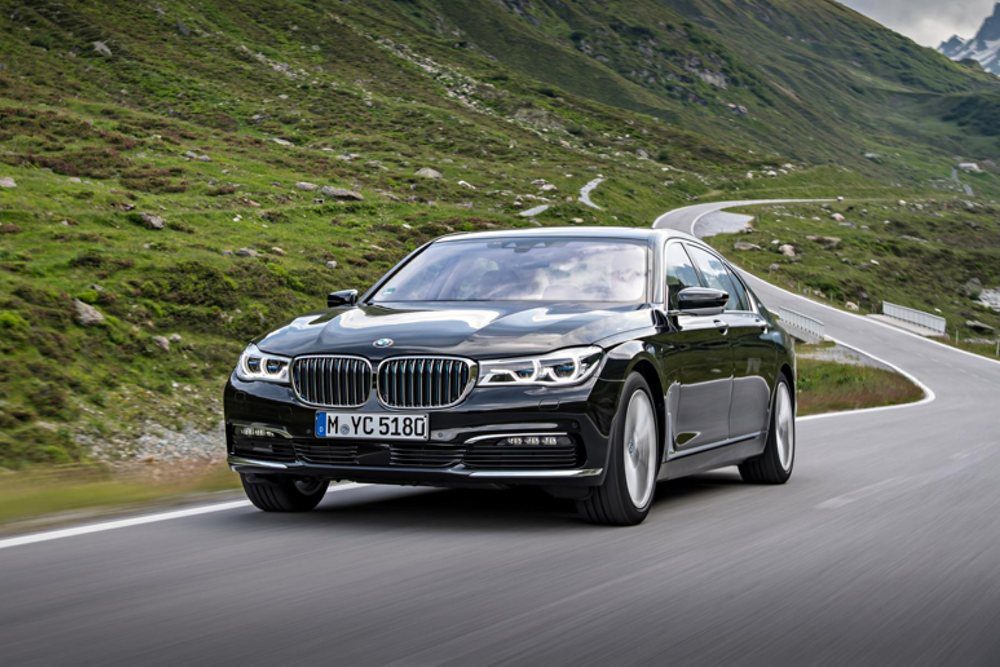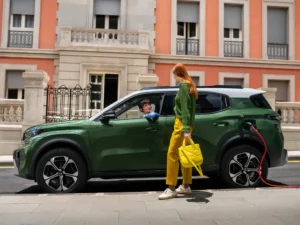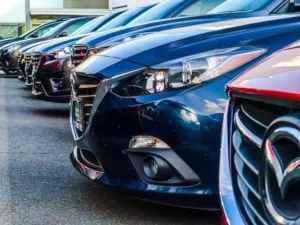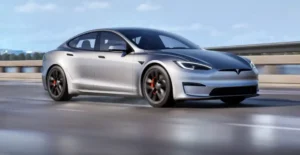Last year BMW produced a couple of million units. The last figures from BMW show Group sales of 1.83 million cars in the first three quarters of the year. We do now know that the Group sold 140,000 EV and Plug In Hybrids during 2018 with a near 40% growth on 2017.
To answer the question of what share of total sales is electrified models we need to take 3/4 of the 140,000 as a share of 1.83 million. That’s just about 6% of all BMW units have some EV component.

The board seem over the moon with this result. Harald Krüger, Chairman of of BMW said.
Since launching the BMW i3 in 2013, the BMW Group has rapidly grown its sales of electrified vehicles. With over 140,000 delivered in 2018, we have once again achieved our ambitious target
Harald continued “This great sales result and our impressive market share proves our vehicles are what the customer wants. In countries which offer appropriate infrastructure and regulatory support, we see how quickly electromobility can become the norm. I’m confident that by the end of this year, there will be a total of half a million electrified BMW Group vehicles on the roads, with much more to come as we continue to extend our model line-up over the next few years.”
European sales
Europe is the Group’s biggest sales region for battery and plug-in hybrid vehicles, accounting for over 50% of sales in 2018. With 75,000 electrified vehicles delivered to customers in Europe last year. BMW Group claim to be market leader in the region, with over 16% market share. One question where Nissan is by comparison. We do know that in Europe the split of EV and PHEV is close to 50:50 and Nissan claim 43,000 LEAFs sold in the first eight months of 2018 in Europe. We guess that the majority of BMW units are PLug-In rather than the pure EV i3 or i8.

In the company’s home market, Germany, the BMW Group accounts for one in five electrified vehicles sold last year. Globally, the BMW Group’s market share is over 9%. The company’s biggest single market for electrified vehicles is the USA, where over 25,000 electrified BMW and MINI vehicles were sold in 2018, accounting for more than 7% of the BMW Group’s overall sales in that country. The BMW 530e was the year’s biggest-selling luxury plug-in hybrid in the USA. – We guess not a huge market but includes Porsche Panamera PHEV, Range Rover PHEV and a Mercedes E Class Plug In.
September 2018 deliveries of BMW i, BMW iPerformance and MINI Electric vehicles totalled 14,559 units worldwide, an increase of 35.0% on the same month last year and the highest monthly total ever for BMW Group electrified. Sales in the year to date total 97,543 (+42.0%), once again confirming the BMW Group’s position as a leading global provider of premium electrified mobility. Since the launch of the i3 in 2013, a total of more than 313,000 BMW Group electrified vehicles have been delivered.
EV plans for 2019
The Group has a solid EV plan and expects to launch several new plug-in hybrids, during 2019 including the new generation BMW X5 plug-in hybrid and the new BMW 3 Series plug-in hybrid. These models will have the latest generation of electric drive trains, offering an electric range of up to 80 km according to the NEDC cycle. 2019 is also the year when the hotly anticipated MINI Electric will be revealed, which will be built in Oxford.
Further out
By 2021, the BMW Group will have five all-electric models: the BMW i3, the MINI Electric, the BMW iX3, the BMW i4 and the BMW iNEXT.

By 2025, that number is set to grow to at least twelve models. Including plug-in hybrids, the BMW Group’s electrified product portfolio will then comprise at least 25 models.
This wide range is possible thanks to highly flexible vehicle architectures and an equally flexible global production system. Going forward, the BMW Group will be capable of manufacturing models with all-electric (BEV), plug-in hybrid (PHEV) and conventional (ICE) drivetrains on a single production line. Its ability to integrate e-mobility in the production network enables the BMW Group to respond even more flexibly to the increasing demand for electrified vehicles.
The BMW Group is currently developing the fifth generation of its electric drivetrain, in which the interplay of electric motor, transmission, power electronics and battery will be additionally optimised. Integrating the electric motor, transmission and power electronics also cuts costs. Another advantage is that the electric motor does not require rare earths, enabling the BMW Group to reduce its dependence on their availability. The fifth generation of the electric drivetrain will be installed for the first time in the BMW iX3 in 2020.
BMW Group
The Group includes not only BMW but Mini and Rolls Royce.






